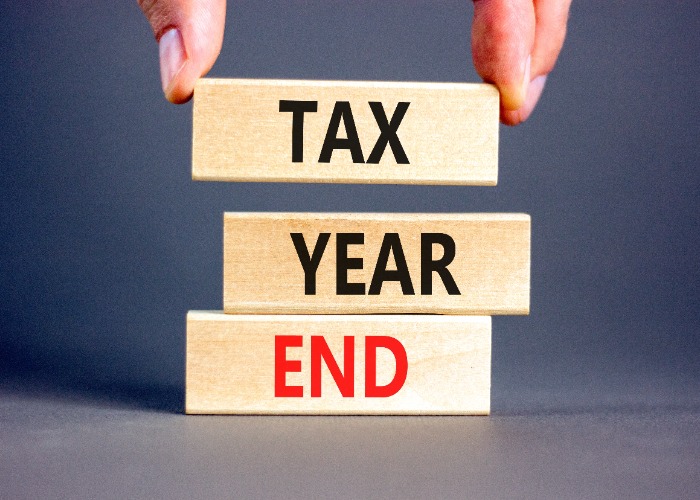To-do list for the end of tax year: ISA allowance, Capital Gains Tax, Inheritance Tax gifts, and more

With less than two weeks to go before the end-of-year deadline, we look at the top perks to make use of before the 2024/25 tax year ends.
Time is rapidly running out to shield more of your cash from the taxman.
With the chancellor reportedly planning another tax raid in her Spring Statement, it's especially important you make full use of all the tax boosts currently on offer.
But you'll need to act fast as the end of the tax year is now just a month away.
So let's take a look at seven of the most valuable allowances and perks to make use of before midnight on 5 April.
1. Top up your State Pension
Many savers could increase their retirement income by up to £65,000 through a time-limited benefit.
Under current rules, the Government allows pension savers to make voluntary National Insurance (NI) contributions to cover any years missing from their record.
Your NI contributions determine how much State Pension you receive.
This would involve an upfront cost of just over £8,000.
Typically, you can backpay up to six years.
However, savers can fill in an additional 10 years due to a time-restricted concession resulting from changes to the State Pension system.
Read: how to top up your State Pension
2. Use your ISA allowance
Most Brits get an annual ISA allowance, which you can place in an ISA for interest-free returns.
In the current tax year, that allowance stands at £20,000.
You can put away cash, invest in stocks and shares or have a mix of both.
But it’s a case of ‘use it or lose it’ as the ISA limit starts again on 6 April.
And this year's allowance could prove particularly important, given the rumours that the chancellor could be set to slash it to just £4,000 from next year onwards.
3. Stash some cash for your kids
Many banks and building societies offer children’s savings accounts, but a Junior ISA means that not only are the profits tax-free.
However, your offspring can't touch the money until they’re 18.
The current Junior ISA limit is £9,000 a year.
Like the adult version, you need to use it before the end of the tax year or it's gone for good.
The best UK bank accounts for kids and teenagers
4. Use your Marriage Allowance
You can transfer £1,260 of your annual personal allowance (which is currently £12,570) to your husband, wife or civil partner.
This can reduce their tax bill by up to £252.
You can check on the Government's Marriage Allowance calculator.
There is also the Married Couple's Allowance, which can reduce the tax bill by between £401 and £1,037.50 a year.
To apply, couples need to be married or in civil partnerships and living with each other. One of them also needs to have been born before 6 April 1935.
Read more about who is eligible on this Government webpage.
Marriage Allowance: how to get a £252 tax break
5. Give money away
If you die and your estate is worth more than £325,000, Inheritance Tax is due at 40% on everything over this limit.
That said, one of the biggest shocks in the October Budget was the Government’s decision to bring unused pension contributions into the threshold, which had previously been exempt.
But you can give away or ‘gift’ £3,000 per tax year, while unused allowance from the previous year can be rolled over.
You can give the money away to one person or split it between several people.
There are other ‘exemptions’ which enable you to give away lump sums.
For example, you can hand over up to £5,000 if one of your children is getting married, £2,500 to a grandchild and £1,000 to others.
You can give as many gifts of up to £250 per person as you want each tax year, as long as you have not used another allowance on the same individuals.
Check out How to cut your Inheritance Tax bill.
6. Use your Capital Gains allowance
Capital Gains Tax (CGT) is paid if you make a profit selling any of your ‘assets’, such as property, paintings or other valuables.
Thanks to recent Government changes, rates have changed in the past tax year.
As of 30 October 2024, you now pay 24% on residential property and 28% on carried interest if you manage an investment fund.
Read: how to cut your Capital Gains Tax bill
7. Use your Dividend Allowance
Some stocks and shares that you invest in will pay you dividends ‒ effectively your share of their profits.
The tax-free Dividend Allowance is set at £500 for this year, down from £1,000 in 2023/24.
Comments
Be the first to comment
Do you want to comment on this article? You need to be signed in for this feature